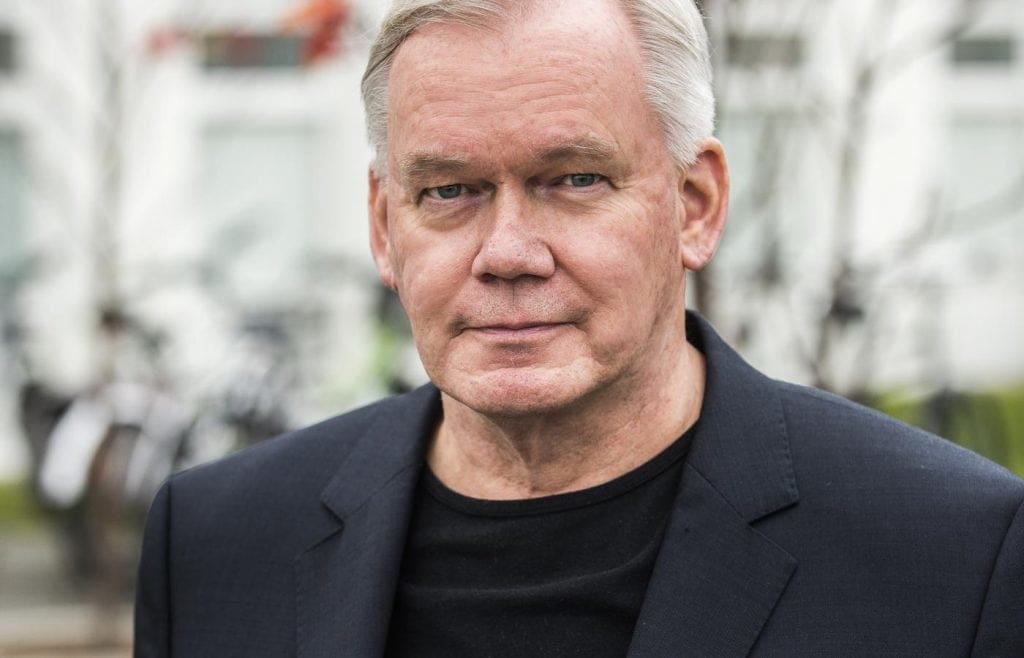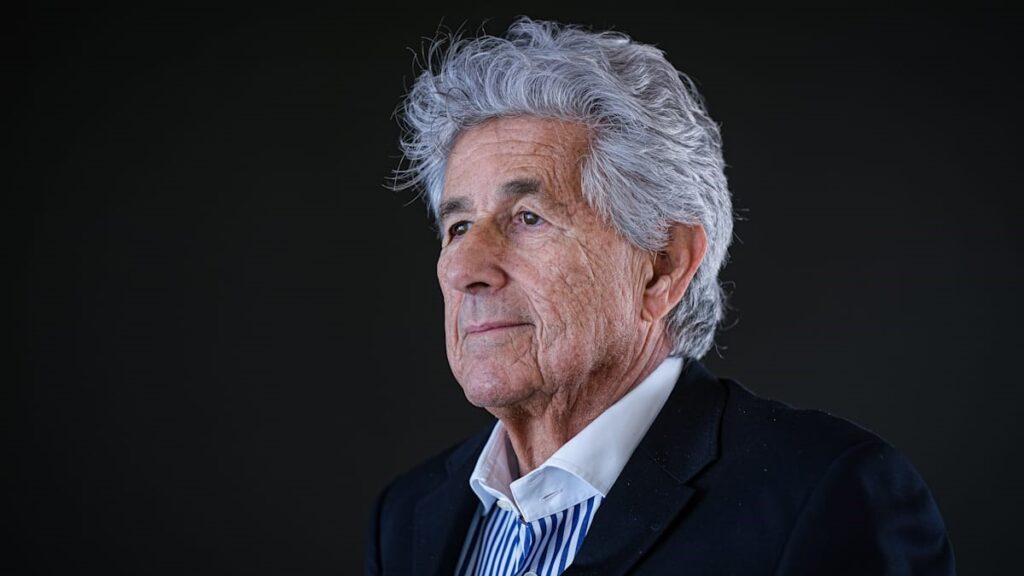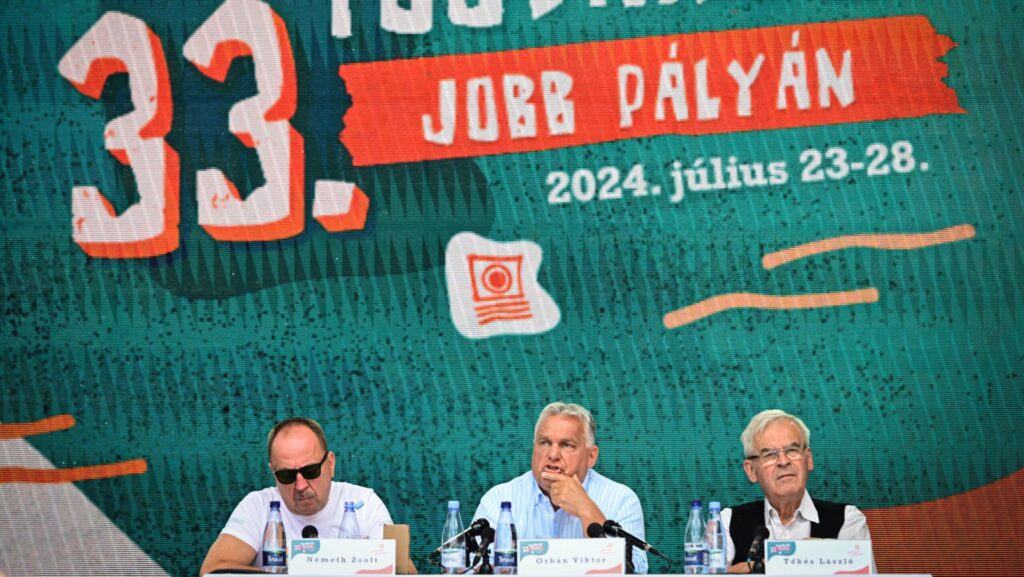Contrary to numerous critics, the transfer of decision-making from the government to the forces of the market can be understood as a democratic process aligned with the values of conservatism, too.
Hannes H. Gissurarson, an Icelandic expert of neo-liberalism and conservatism, offered his thoughts on the compatibility of Thatcherist values with present-day conservatism at the premises of Lónyay-Hatvany residence on the invitation of the Budapest-based think tank Danube Institute. He could not have arrived to a more fitting company, as the founder and director of the Institute, John O’Sullivan was an advisor of the former premier of England in question, and thus an authoritative source on the matter of Thatcherism. He introduced the speaker of the day combining reminiscences about the process of the end of the Thatcher-era in 1991, with a formulation of a definition of Thatcherism. He said that at the heart of the ideology of the Iron Lady were ‘free market economics, rationalism and respect to traditional social attitudes’ emphasizing that it is too shallow a critique to say that Thatcherism was only about economics, devoid of social concern.
Hannes H. Gissurarson started out with an expression of agreement with the introduction, pointing out that the ‘small state’ of Thatcherism is still a ‘strong state’, but with different goals. He explained that the contemporary left-wing and liberal critics of neo-liberalism are quite right in the description of the neo-liberalism as not a “negative” state-weakening movement, but as a transformation of the state with a different set of objectives. The difference between the evaluation of the actions of the former premier by left-wing and conservative observers lay only in the evaluation of the outcomes of this transformation. Mr Gissurarson expressed a clear stance in this matter. He identified Mrs Thatcher as a ‘world historical figure’ in a Hegelian sense, with the former British premier playing the role of a ‘tool of history’, precipitating brand new processes in history, and barring others – for example, contributing to the demise of one of the biggest and most flawed modernist projects of the twentieth century, the Soviet Union, along with President Ronald Reagan.
Mr Gissurarson then set out to argue on the side of the positive effects of Thatcherism. He acknowledged that her project was indeed a ‘seize of state’ grounded in a theoretical framework of Austrian and Chicagoan economic thought. However, he pointed out that this does not equal to an antidemocratic process: democracy is not only about the people represented by a bureaucratic government, but giving the people a free choice in changing the ruling forces of their lives, be it—in this case—a transfer of certain societal roles to the market from the political system. He explained: the market is only a place, not an evil monolithic entity, thus identifying the marketplace as totally separate from the political forces of a given historical moment, showing his strong Hayekian background. According to him, the neo-liberal transformation can be understood as a transfer of power ‘from the bureaucrats to consumers’ giving a bit of a plebeian nuisance to the objectives of neo-liberalism.
The Icelandic expert put the achievements of Thatcherism in a broader, international context. He acknowledged that the economic expansion of the 1980s was not stronger than other historical growth periods. He, rather, held up the end of the relative British decline among world economies and the surpassing of the growth rates of other continental states as the greatest positive effects of Thatcherism. Mr Gissurarson then explained Thatcherism as a fresh current of patriotism, too.
He emphasized that patriotism is not only ‘transferring money from those who earn it to those who waste it’, but rather a respect of evolutionary, organic processes and changes in a society
He also elaborated on the core question of the event: is Thatcherism real conservatism? Pointing back to his descriptions of the elements of Thatcherism, he explained that while she can be considered as a representative of a radical and thus anti-conservative force, real conservatism does not lie in supporting ‘a slower pace to socialism’ or preserving outdated institutions, but embracing traditional values and liberty itself. The state of a society in a given moment is not necessarily the state to be preserved by the conservatives of the given historical time. He also explained that while the market-embracing of neo-liberalism is indeed destroying communities, it is a part of an organic process, and thus definitely creates new ones. In this sense, it is not antithetical to traditionalist political thought. Real conservatism does not lie in the strict preservation of the given societal frameworks in a quite subjectively selected historical moment. In the end, he simply asked the rhetorical question: ‘How could one live up to traditional societal values in a nursery?’ offering a surprising and thought-provoking merger of libertarian and conservative thought.
The discussion afterwards mostly revolved around questions concerning the role of nation states and the international system. The participants posed a lot of speculative questions about theoretical Thatcherian answers to today’s international challenges. Mr Gissurarson generally explained Thatcherism as a moderate force in the international scene, but nevertheless a force to be reckoned with. He emphasized the participation of Britain in the Falkland War as a show of national backlash to outside forces looking to diminishing the strength of Britain. He pointed out that Thatcherism is not a force that actively seeks confrontation and imperial dominance, and not even a force of paternalism toward weak states, but a force that would actively and independently defend its interests and the international order. On one occasion, he also offered an interesting insight into the forces moving the international economic decisions, while explaining the effect of the financial crisis in Iceland. He explained that the United Kingdom barred liquidity from the Icelandic banking system with the hope of breaking the “arc of prosperity” constituted by Ireland, Iceland and Norway, thus discouraging Scotland to steer away from London toward a stronger cooperation with these states. He summed up his dual argument about conservatism: nation states and ethnic politics is a force to be reckoned with, and, in the end, neo-liberalism has a net positive effect: the lack of bailout in Iceland resulted in a much healthier financial system.
The Icelandic expert indeed drew an intellectually interesting and provocative theoretical framework, surely providing enough incentive material to further debates about market forces, the nature of patriotism, and the meaning of national interest for a Central European audience.








